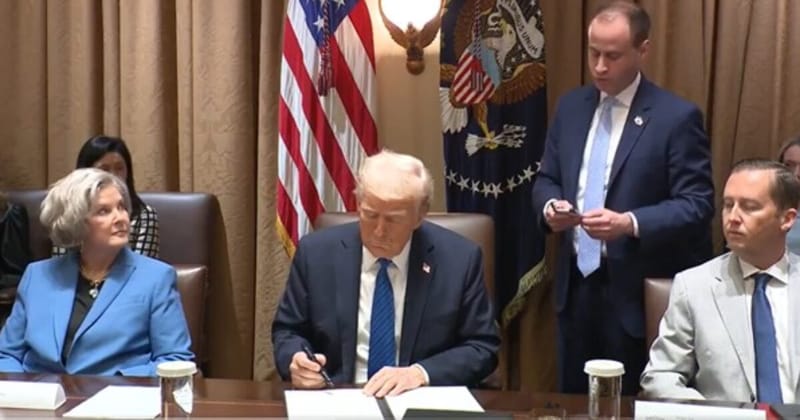Trump's Win Triggers Outlandish '4B Movement': A Misguided Attack on Traditional Family Values
In the aftermath of President Donald Trump's decisive victory in the 2024 election, a peculiar trend has emerged among some liberal women—the so-called '4B Movement'. This movement, rooted in extreme feminism from South Korea, advocates for women to completely eschew relationships with men, including marriage,

In the aftermath of President Donald Trump's decisive victory in the 2024 election, a peculiar trend has emerged among some liberal women—the so-called '4B Movement'. This movement, rooted in extreme feminism from South Korea, advocates for women to completely eschew relationships with men, including marriage, dating, sex, and childbirth. This radical response to Trump's election has been met with bewilderment, criticism, and outright mockery from many conservative circles.
A Misguided Reaction
The '4B Movement'—where 'B' stands for 'bi' meaning 'no' in Korean—seems to be an exaggerated protest against what these women perceive as institutionalized misogyny and a rollback of women's rights. However, from a conservative perspective, this movement not only misunderstands the complexities of gender dynamics but also threatens the very foundation of traditional family structures—a cornerstone of American values.
Social Media Outrage and Ridicule
Conservative commentators and social media users have been vocal in their critique:
- Ridiculous and Extreme: Many have labeled the movement as both "ridiculous" and "extreme." On X, posts highlight the absurdity of rejecting all heterosexual relationships as a political statement, suggesting that this approach will only serve to isolate women further rather than engage in constructive dialogue or political action.
- Counterproductive to Women's Interests: There's a strong sentiment that the 4B movement does more harm than good. Critics argue that by choosing not to engage with men, women are not only cutting off potential avenues for genuine partnership and support but also undermining their own influence in society by opting out of the very institutions they wish to change.
- A Distraction from Real Issues: Conservative voices express concern that this movement distracts from what they see as more pressing issues, like economic policies or national security, which directly impact all Americans, not just based on gender. The focus on personal relationship choices as a protest method is seen as trivializing these broader concerns.
- Demographic Consequences: There's a strategic observation that such a movement, if followed widely, might lead to a decline in birth rates among liberal women, thereby inadvertently supporting conservative demographic growth. Some conservative commentators have even welcomed this outcome, seeing it as an unexpected benefit of Trump's presidency.
The Future of Family and Society
From this conservative viewpoint, the 4B movement is not just a fleeting protest but a concerning trend that could have long-term societal repercussions. The rejection of family-building and traditional roles is viewed as an attack on the nuclear family, which conservatives hold dear as a stabilizing force in society.
While the movement might resonate with a segment of the population feeling disenfranchised or threatened, the overall conservative reaction is one of skepticism and concern. They argue for a more nuanced approach to gender equality, one that includes working within existing frameworks to enhance rights and opportunities without upending the social structures that have historically provided stability and continuity.
As America navigates its post-election landscape, the 4B movement serves as a flashpoint for debate over how to balance progress with preserving what conservatives consider the tried-and-true elements of society. Whether this movement will gain significant traction or remain a niche expression of discontent remains to be seen. However, for those on the right, it underscores a broader cultural battle between progressive ideals and traditional values.



